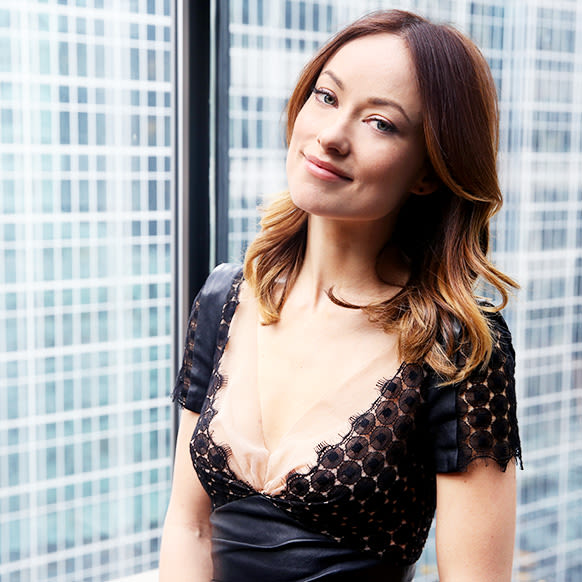“I think if beauty products allow people to feel more confident and to operate at a higher frequency in their life, I’m all for it. I hate the idea of beauty as an oppressive force that makes people feel terrible about themselves—this desire to look like someone else, to feel pressure, or to feel like one isn’t enough on their own. I’m all for recognizing one’s own natural beauty and harnessing that confidence and being a badass. I don’t agree with this perception that beauty products are inherently negative, that they’re a 'mask,' that you are covering up who you are or escaping something. I really think that people can become more in touch with themselves by expressing themselves through hair color, makeup, or fashion. My attitude toward that stuff is all about confidence, it’s about having fun with your look, as long as it makes you feel great.
Frankly, I’ve always had fun with products, since I was a kid. When I was 12 in D.C.—I grew up in Georgetown—I would walk to the CVS on Wisconsin Avenue and look at the Revlon displays—at that time I think Cindy Crawford was the major Revlon model—and I would buy all the different products, you know, as slowly as you could afford them, $1.99, $2.99! And I’d go home and just experiment. Growing up, I was into all kinds of self-expression. I went through a real punk phase. Once, I shaved the back of my head into a really hideous under-shave look, which my mom said made me look like I got hit by a tractor. I dyed my hair every single color. But I’m a big proponent of that type of experimentation for women, at all ages. It shouldn’t just be for adolescents, and it doesn’t mean when you’re older you can’t continue to experiment.
Changing hair colors does make you feel completely different, doesn’t it? I mean, when I was really young—this adolescent phase—I went for everything. Remember Manic Panic colors? I was purple, green, red, sometimes a mixture of all three, and not always on purpose: I had this tiny little sink in our house and I remember crouching over and just staining it with green hair dye! After that I was blonde for a long time; I’ve been bleached platinum blonde, I’ve been dark blonde, I’ve had black hair, I’ve had dark red hair…. I feel like I’ve actually done every single color, and somehow my hair hasn’t fallen out. Now, I only change it for work. I try to give it a rest, otherwise, but it still changes a lot. It’s been, like, five colors in 2012.
I spent the first couple years of my career as a very blonde blonde. And then I went brunette for a role, and suddenly all my offers changed—the types of roles people approached me with totally changed. When I was really blonde, it was always like, ‘The really pretty girl,’ or ‘The sexy hot chick.’ At that point in my career, it was all lame pilots—those were the types of roles I was going for. And then, when I was on The O.C., it was like, ‘she’s punk-y!’ I had a purple streak in my hair, and I was the ‘punky girl.’ And then when I went brunette, the roles went to more, ‘She’s a waitress with a heart of gold, and a tough life,’ or ‘She’s a doctor.’ And I always wondered—would I have been offered those roles had I still been blonde? I don’t think so. I think the perception of brunettes being more intellectual persists. Even though it makes no sense! I mean, Hillary Clinton is very, very blonde! And when I went from being blonde for a long time to brunette, I felt like I was invisible, because you’d walk into a room, and nobody immediately looks at you. When you’re blonde, it’s like you have a giant highlighter on your head; people can’t help but stare. So, it definitely changes how people think of you. And red is a very different reaction. I feel like redheads are perceived immediately to be kind of sassy and sultry, or at least uniquely… I don’t know, just a little more sassy.
The color I have now feels most like me, which is really just a combination of everything it’s been: brown, with some blonder ends. It’s probably the closest thing to my natural [color]. I think when you get to be around thirty, you stop trying to transform into someone else, and you start really understanding what your natural look is, and then you start trying to achieve what you had—when it comes to hair—as a four year-old. You look at your four year-old pictures, and you’re like, “Whoa! Look at that ombré!” It’s funny, you come to a level of self-acceptance, at that age. But then again, why not shake it up?”
—as told to ITG
Olivia Wilde photographed by Emily Weiss at the New York launch of Revlon's new Luxurious ColorSilk Buttercream hair color range on February 7, 2013.

